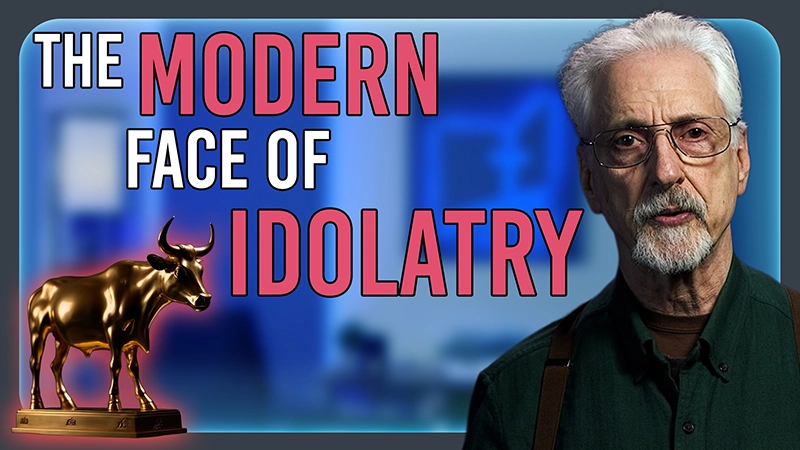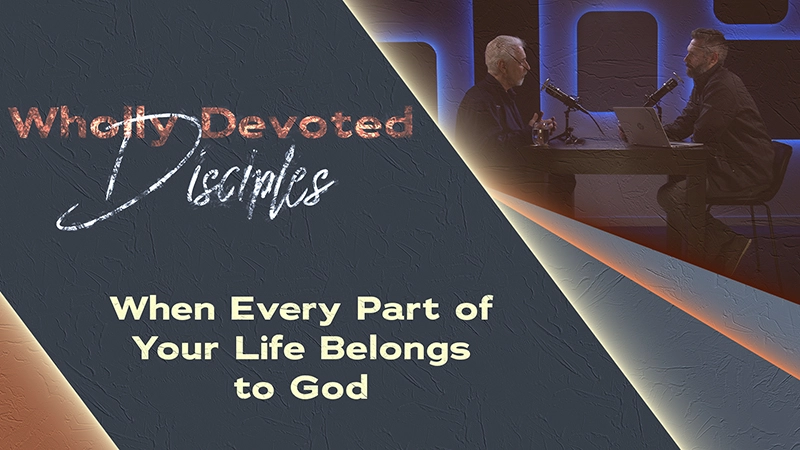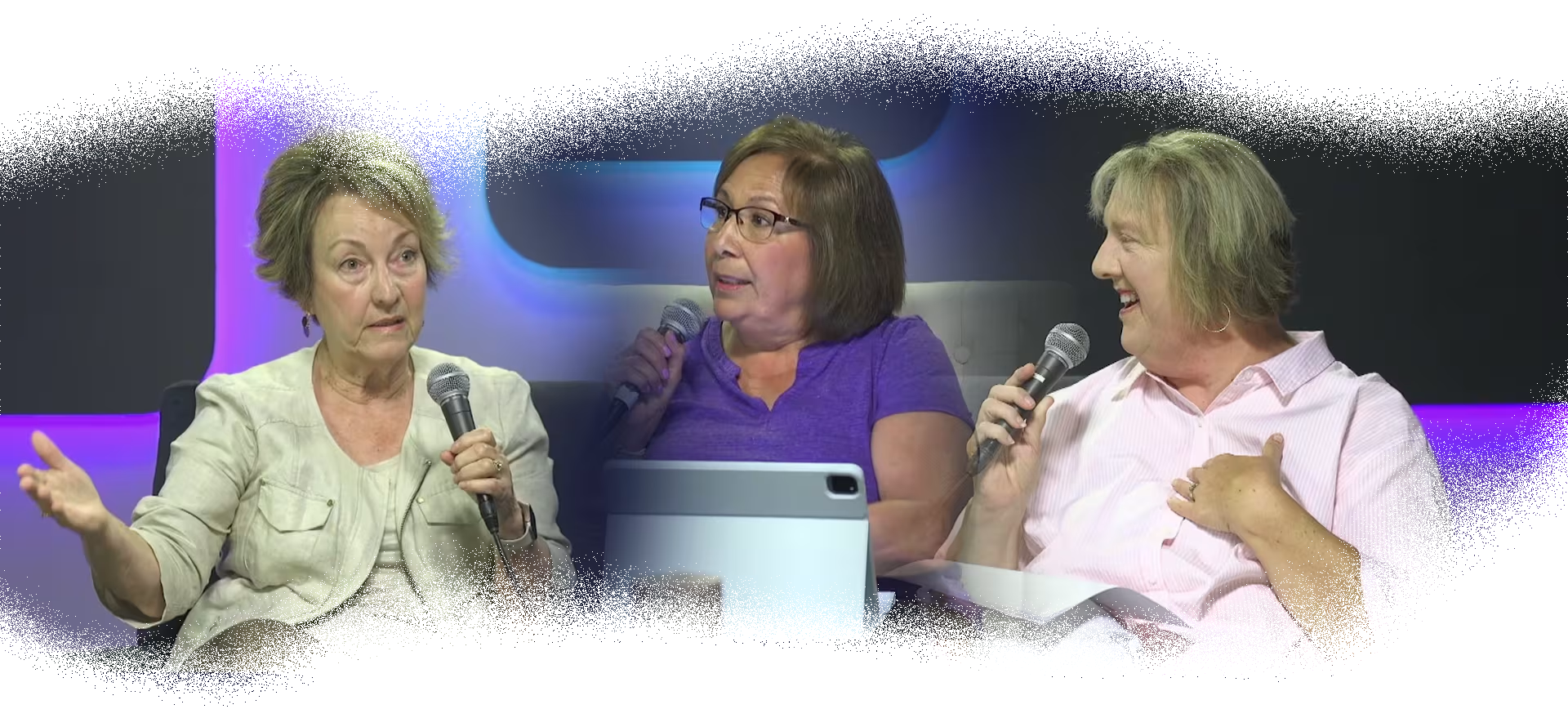.avif)
Humility is the Key to Loving Others
In this segment, Dustin Renz teaches us how someone can go from a life polluted with selfishness to one that is full of mercy and compassion for others. We find that this miraculous heart change is possible for those in whom God has begun to establish a life of humility. (from Podcast Episode #430 - Exposing the Path of the True Christian Life)
Nate: Dustin, one of the characteristics of a person who is truly humble is that they have a constant awareness of the importance of other people. I want to spend some time on this because I think it can be really eye opening. But before we go there, let's talk about the converse of that. If a person is proud, we could then say that they don't live in a constant awareness of how important other people are doing. As someone who’s been a Pastor for several years, how would you say that prideful people view others?
Dustin: I think when a proud person looks at someone else it's always about what they can get out of them. Depending on the manifestation of pride, it will look different. For the vain person, it might be trying to get attention from others. For the person who loves to talk and thinks they know it all, it might be just getting someone else's time or a compliment. There are a lot of different ways that it can play out.
A spiritually proud person might look at those he perceives as less spiritual than them to prop themselves up in their own mind. For this kind of person, people always become an opportunity to extract value for personal gain. So, it becomes not about how he can be a blessing to others, but instead what he can get from them. I think that's really at the heart of a proud person.
Nate: The way that you just explained that shows how subtle self-centeredness and selfishness can be. I know for myself oftentimes; it really takes the piercing precise illumination of the Holy Spirit to expose what's really going on inside my heart regarding the way that I relate to other people. Can you share some other ways that we could see the subtleties of selfishness and self-centeredness in people?
Dustin: Yeah, I think that it's important that we allow the Holy Spirit to reveal to us our hearts because a lot of these things we're talking about happen internally, and if we're not conscious of what's happening inside, then will totally miss the manifestations of pride that take place. I think we see it in everyday life. When you go out to eat and your waitress doesn’t bring your food to you the way that you wanted it, or it's taken too long, are you treating that person like someone who's created in the image of God, or are they just an inconvenience? Is your schedule so important that you totally forget that they're going through things in their lives that you don't even know about? Or you're walking around and meet a homeless person, and instead of showing them love in some way, even if it's just to greet them or pray for them, you just move on, because you see them as an inconvenience.
I think of myself rushing through the grocery store and trying to get in line in front of people thinking my agenda is more important than everyone else's and somehow what I've got going on trump's everyone else around me. You see it also in how you spend your time. How much time you are spending on yourself versus pouring into other people can show the priority in your life in that area, or even how you spend your money. Are all the resources God has given you used for self, or are you allocating them to help be a blessing to other people?
I think there are a lot of ways we all have this struggle in our lives. We can see it if we really pay attention to it. I think the ultimate thing is that when you're at the center of everything in your mind there's definitely some pride that will rise up. When you become the all-important thing, your agenda, your money and your priorities become way more important than anyone else's.
{{blog-brse="/blog-ads-storage"}}
Nate: Let’s talk now about a humble person, someone who is constantly living with the awareness of the importance of other people. How do we see that playing out in that person's life?
Dustin: It’s the exact opposite of what we talked about with the proud person. Rather than becoming so conscious of self, they become conscious of other people. When they are interacting with someone, it's not always about what they can get from them, it's also about what they can give to them. “How can I pour into you?” becomes the focus. As opposed to trying to grab listening ears for self, they's going to be that listening ear for someone else. Instead of expecting everyone to compliment them about how great they are, they're going to be the one to encourage and be a compliment to others. All the things that a proud person would do for self, instead they're willing to give them away instead of trying to take them for themselves. A humble person just wants to love others and to be a blessing and encouragement to people.
Nate: It's incredible that there are so many different fruits of humility. For the vain person, as they begin to be humbled, it's going to look one way. For the spiritually proud person, it's going to look another way, and for the self-centered person it will look completely different. But in the end all of the fruit comes from humility. Could you share a little of your own testimony? When God began to humble you, how did you begin to see the importance of others?
Dustin: I really began to notice it when I was in the Pure Life Residential Program. I remember when I first came into the program, I was so full of myself. I was dominating conversations. Everything was always about me and what I could get out of other people. But I started to notice the Lord was really reversing my heart when I had brothers in the program that I could reach out to and ask, “Hey how are you doing?” They would share their burden and what they were going through in their life, and I noticed that I actually cared. It became something that I was concerned about, and I'd follow up with that brother to pray with them and try to do whatever I could to help them.
I noticed that people's needs and what they had going on in their life became a priority for me. It got to the point where I’d wake up and wonder “How is so and so doing? I need to go find out.” I began to try and find ways to show mercy to multiple people, and it was totally different than previously, where I was always trying to get for self. I think when you begin to see that change and humility begins to set in, you'll notice internally that you will care more. The vain person will begin to care more about the image of other people more than their own image, and the spiritually proud person will instead of looking down on others, begin to see God working in their lives and have a merciful heart toward them. When they begin to give away whatever that thing is they were trying to obtain for themselves and see the value in other people, that's when they really begin to see how God can change their heart. It will blossom into a lifestyle where that becomes simple in their everyday life, and they don't have to think about it anymore to live that way. Their whole life becomes focused on other people, and they don't have a whole lot of time to focus on themselves.
Nate: Anytime you're allowing God to deeply change some aspect of your life, you realize that it's a journey. You don't just arrive there overnight. There are temptations, there are difficulties, there are setbacks, and there are failures. We've been talking about how important it is to begin to put the needs of others above our own, but sin is so deceptive. Even at times where we find ourselves trying to put the needs of others first and we are serving, it can still become a really subtle way for us to serve ourselves again. As a full-time Pastor, do you find that temptation to be true?
Dustin: Yes, I think ministry is a great example. As a minister myself, I see that the chief end of ministry is to serve other people. Ministers are essentially supposed to be giving their lives for others, but I've seen this as a struggle in my own life especially, when I think about Bible School. I was in a class of students that would be future pastors, worship leaders, and teachers. People who had a real desire to give their lives to the Lord in service and yet there was still a mixture of self in there.
I was thinking out of all the people I met in Bible School and went to school with, and all of us had great aspirations. We wanted to be the Pastors of the next mega churches or recorded worship artists; everybody had this desire to have some kind of fame. Of course, as you know, the American church culture really plays a big part in that. But I can't remember anybody who said, “I just want to have a small church out in the country with 20 people in it and just faithfully serve Jesus with those people.” The faithfulness to the call to serve other people was downplayed and the focus became how they could be seen by other people.
I fell into the same trap myself early on when I decided to do music ministry. I began to perform in concerts and be in front of people and while the label of Jesus was on it, and I sincerely desired in some ways to serve the Lord with it, at some point it began to become about me and how other people saw me. That balance kind of got out of whack, where it ended up being very self-serving without me even really realizing it. So, I think there's always a danger, whether you are a minister or even if you serve people in other ways in your regular Christian life. We must take care of our hearts so that we're not doing things for other people just to check it off the list and say, “Oh I was humble today.” Then it really becomes about what I did. It really comes down to having a heart that desires to help other people and if we don’t have that, we need to ask the Lord to give us a real concern for the importance and priorities of other people's lives.
Nate: With that in mind, could you give some practical exhortations to somebody who's saying yes, I want my service to the Lord to be pure and not mixed with selfish desire?
Dustin: I would tell that person that they need to look at Jesus as their example for true humility. He created the entire universe, yet when He came to the earth, He came to serve other people, not to be served. He said that himself. We see Him washing the feet of His own creation, His disciples. We also see Him ministering to the outcasts of society. The example that He led us to follow is being obedient and obeying God, even in the little things that no one else notices. In Matthew 25, in the parable of the sheep and the goats, He says to the sheep “When I was hungry and thirsty, you gave me something to eat and drink. When I was sick and in prison you came to visit me. When I didn't have clothes on, you clothed me.” They say, “Well, when did we do that?” And His response is, “You did that when you did it to the least of these.”
So you and I, as we're walking through our daily lives, our whole goal shouldn't be to try to achieve some certain level of expectation. Whether it’s being concerned about what people think of us or elevating ourselves in some way, it should be to simply obey God in our everyday lives. It should be about ministering to people in small ways that maybe no one else will ever see. It could just be in your prayer life as you walk through the grocery store or as you're out at work praying for people internally.
You don't get rewards on earth for that or a claim for that, but God sees it and He promises to reward us on the other side. I think it's important for us to realize that we should never seek to be elevated. God is the one who chooses to elevate people. We should choose to humble ourselves. What that looks like in everyday life is looking for opportunities to be a blessing to other people and to pray for others. We need to make other people's concerns more important than our own. As we do that, we'll find ourselves walking in humility. If God chooses to lift us up in some way, that's up to Him, but our desire should be “Jesus, I just want to serve you in the smallest things, and if no one else sees it but you, I'll be okay with that.”

















